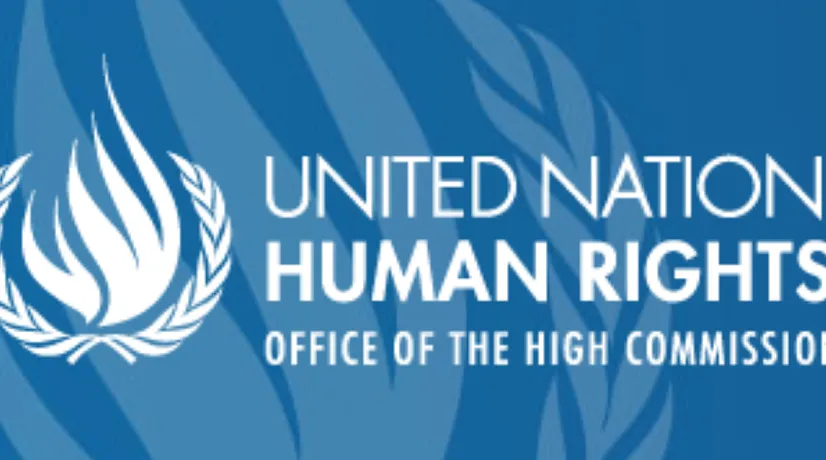High Commissioner Report on Rohingya and Other Minorities in Myanmar: Human Rights Council 43rd Session
27 February 2020

Statement by Michelle Bachelet, United Nations High Commissioner for Human Rights
Geneva, 27 February 2020
Madam President,
The Council has been presented with our report on root causes of the violations and abuses suffered by ethnic and religious minorities in Myanmar, including the Rohingya, pursuant to resolution 39/2. I am pleased to note the engagement of the Government of Myanmar in providing constructive inputs to the report.
As noted in the report, discrimination and exclusion against religious and ethnic minorities have characterised many of the laws and policies of Myanmar for over half a century. They have contributed to and perpetuated violence, extreme poverty, exploitation and dispossession. Notably, the 1982 Citizenship Law rendered stateless a significant proportion of the Rohingya and other Muslims, compounding their vulnerability.
Moreover, ethnic and religious minorities across the country have to varying degrees, suffered serious human rights violations at the hands of the military, whose counter-insurgency policies and tactics have at times included the deliberate targeting of civilians. Ethnic and religious minorities have, to a lesser extent suffered abuses by ethnic armed groups. Several international accountability mechanisms have commenced proceedings in relation to the alleged international crimes committed in Myanmar.
The root causes of these violations are complex, multi-dimensional and long-standing. Unpacking and untangling this multi-faceted human rights challenge requires understanding the historical, political, economic and social dimensions as a prerequisite to identifying solutions.
Democratic deficits in Myanmar, as well as entrenched impunity, weak rule of law, and the lack of civilian oversight over the military, have been major enabling factors.
Economic interests have also been an important driver, fuelling displacement, deepening inequalities and depriving minority communities of the basic means for survival. The social and economic impact on women and girls, particularly through sexual and gender-based violence, has been especially acute.
The recent upsurge of xenophobia and violence can also be partly attributed to the stresses and uncertainties of Myanmar’s current transition from decades of authoritarian rule. The dramatic expansion of public access to social media has enabled extremist and ultra-nationalist movements to propagate messages inciting hatred and violence, fuelling communal tensions. I urge the Government to take action to address escalating prejudice and incitement against Rohingya Muslims and other minority communities. Inter-faith, civil society initiatives such as the Panzagar (flower speech) campaign should be encouraged and supported.
In addition, my report highlights some of the other measures that would help to foster greater space for diversity and equality in Myanmar, protection for the rights of religious and ethnic minorities, and ultimately sustainable peace and reconciliation. Addressing the rights of minorities will be essential for Myanmar to resolve conflicts, build peace and consolidate the democratic transition. Decisive measures are needed to ensure genuine accountability and civilian oversight of the military. Legal and policy reforms are needed, including with regard to citizenship. Education reforms can encourage a new sense of national identity and promote diversity and tolerance. Transitional justice processes can help to heal deep divisions.
This year’s elections, current discussions of Constitutional reform, and the ongoing peace process are important opportunities to address the past and shape a common vision for the future. Rebuilding a society based on values of equality, non-discrimination and mutual respect, after so many years of repression and conflict, will also be key to fulfilling the 2030 Agenda for Sustainable Development across the entire country.
I reiterate the readiness of my Office and United Nations system to assist the Government to address these root causes and implement the report’s recommendations.
Thank you, Madam President
၎
င
၎
၎
Announcements
28 February 2025
Asian NGO Network on National Human Rights Institutions , CSO Working Group on Independent National Human Rights Institution (Burma/Myanmar)
Open letter: Removal of the membership of the dis-accredited Myanmar National Human Rights Commission from the Southeast Asia National Human Rights Institution Forum

Progressive Voice is a participatory rights-based policy research and advocacy organization rooted in civil society, that maintains strong networks and relationships with grassroots organizations and community-based organizations throughout Myanmar. It acts as a bridge to the international community and international policymakers by amplifying voices from the ground, and advocating for a rights-based policy narrative.